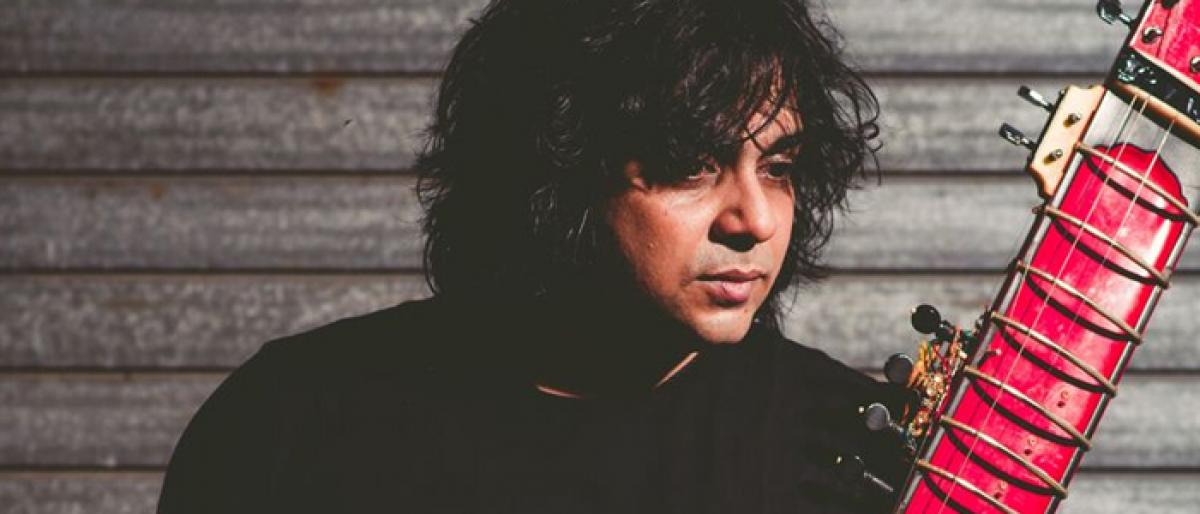Visuals of Music

Fusion music exponent Niladri Kumar debuts in the mainstream movie space with the Balaji and Pi Films Production, Imtiaz Ali presented upcoming film ‘Laila Majnu’ directed by Sajid Ali slated to release on September 7.
Kumar is a fifth-generation sitar player and he learnt the instrument from his father, who was a disciple of Pandit Ravi Shankar. Kumar has produced more than 15 albums in a career spanning over two decades. He has created his own instrument the Zitar (Electric sitar). We have previously heard Kumar’s riff lines in other songs like “Crazy Kiya Re” (Dhoom 2), “Bheegi Bheegi”, (Gangster), “Alvida” (Life in a Metro), “Chup Chup Ke” (Bunty Aur Babul) and more.
The ‘Laila Majnu’ musical score has been garnering good reviews calling it a clutter breaking album, with Kumar having beautifully brought together an ensemble consisting of Arijit Singh, Mohit Chauhan, Atif Aslam, Shreya Ghoshal, Babul Supriyo, Javed Ali and Jonita Gandhi for the film.
Excerpts
How did 'Laila Majnu' happen?
I was approached by Imtiaz Ali to compose for a film which his brother was directing, ‘Laila Majnu’. I always wanted to work with him and it turned out to be quite a journey through out while composing to producing to recording till the end of it all. Sajid Ali, the director had been with me all through the process.
How did you choose singers for each track?
That’s a good question. I wish I could give you the honest answer. It could rattle quite a few feathers. Well, when you compose a song many a time the voice comes to you as if it was made for that voice.
For example, the melody of the song “Sarphiri”, when I produced for the film, I had always imagined Shreya singing it and it was her who did it and the result is there for all of you to see. I knew that Mohit Chauhan, who is a bundle of raw talent and I knew he would bring out something that I was imagining in the song ‘Hafiz hafiz’. Thankfully I had the director Sajid Ali to support me through this.
What is your favourite part of this line of work?
Music should evoke visuals. In this medium, we are articulating the visuals with music. It’s almost like hand in glove. I just love this.
You have worked with many musicians in India and abroad. What did you take away from the experiences?
The one thing that I always realised meeting and playing with these greats is that they always spoke what they had to say in their own voice. What I mean is they always played in their own inimitable style and their own music, which is essentially the journey each one had as a musician in their lives. You cannot live someone else’s journey. You have to find your own.
Did you meet Pandit Ravi Shankar along with your father, what are the memories associated with him and did he teach you a thing or two?
I had met Panditji several times since I was born. I heard my father always saying Guruji and hence even as a kid I called him Guruji. I still have the toy he had gifted me when I was a small kid. My mother told me about it. I have never learnt from him directly. But like all musicians for almost four generations, I have learnt and continue to learn from his music and his life. That journey continues.
By Navin Pivhal


